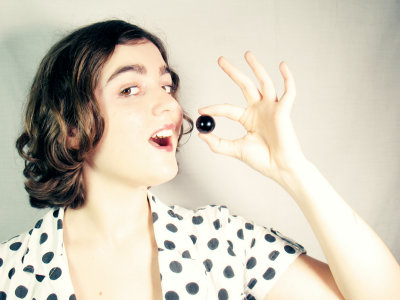What is the effect of eating too much sweet food on your brain?

By
Sweet and delicious foods and drinks, such as cakes, chocolates, ice creams and juices, always contain plenty of sugar. Amy Reichert, a researcher at Western University in Canada, summarizes why humans prefer foods that contain plenty of sugar and what happens when they consume large amounts of sugar.
Your brain on sugar: What the science actually says
https://theconversation.com/your-brain-on-sugar-what-the-science-actually-says-126581
Since ancient times, the cells that make up the human body have lived with the glucose contained in sugar as energy. According to Reichert, glucose was an excellent source of energy, so humans take the initiative in taking sugar, and have evolved to feel especially happy when eating sweets.
When you eat sweet things, dopamine is released from the brain, the reward system operates, you feel pleasant about the action of `` eat sweet things '', and the brain remodels so that you want to eat sweet things again due to brain plasticity Mr. Lyschelt says, it will be. It is said that repeated activation of the reward system by ingesting high-sugar foods may cause the brain to adapt to frequent stimuli, seek more sweets to achieve the same pleasure, and cause a kind of addiction The
Am I a sugar addict? Clearly sugar has dependence like a drug-gigazine

In addition, we conducted a survey on the desire for high-sugar snacks for those who were hungry and those who had finished eating, and found that people who regularly eat high-sugar snacks are not hungry. The result was a high desire for snacks . “By eating high-sugar foods on a regular basis, Reichert says, a vicious circle that amplifies the desire for high-sugar foods is born.”
A sugar-rich diet is said to affect the hippocampus, an organ involved in brain memory. Studies have shown that rats that continue to eat high-sugar foods have a lower memory capacity than rats that do not eat high-sugar foods .
In addition, a network of inhibitory neurons concentrated in the prefrontal cortex, an important area of the brain that is involved in decision making and impulse control, is also said to be adversely affected by sugar. Studies with rats have shown that eating high-sugar foods shows changes in inhibitory neurons, and rats given a lot of sugar showed a decrease in behavioral control and judgment .

By
To protect your brain from sugar, you should start by refraining from sugar intake. WHO recommends that you limit sugar intake to 5% of your daily caloric intake. This is equivalent to 25g of sugar. Japan is said to consume about 15kg of sugar per person (PDF file) annually , and about 40g of sugar is consumed per day.
In order to resist the desire for sugar, you must first reduce your appetite for sweets. Because of the neuroplasticity of the brain, if you keep eating sweet foods, the brain can form new neurons and get used to a diet low in sugar. Reichert said that active foods rich in neuroprotective omega-3 fatty acids , such as cod and nuts, can increase the brain substances needed to form new neurons.

By Jultud
“It's not easy to stop eating habits like eating snacks, but if you continue, your brain will take a steady step towards improving eating habits,” says Reichert.
Related Posts:







